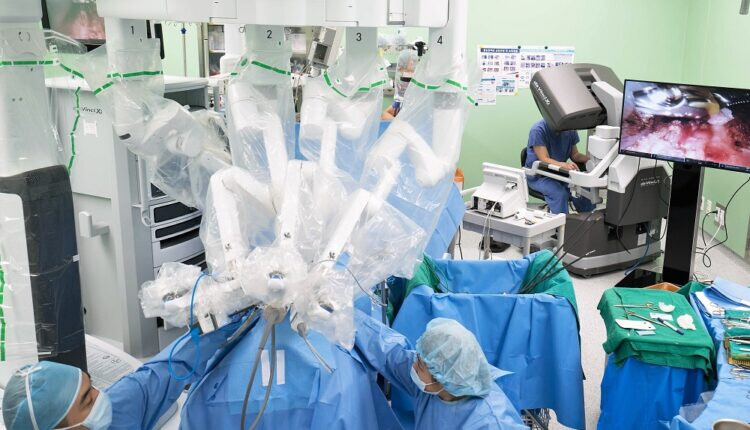
Seoul, South Korea – South Korean companies are intensifying their efforts to develop surgical robots, aiming to break into a market currently dominated by foreign competitors. The domestic race for surgical robotics has gained significant momentum, fueled by recent partnerships and investments.
Rainbow Robotics, backed by Samsung Electronics, has formed a strategic partnership with Elob, a medical device manufacturer, to develop next-generation medical robots. This collaboration aims to address unmet medical needs by introducing a second-generation laparoscopic surgical robot.
The new robot is designed to overcome the limitations of the first-generation model, such as interference between medical staff and robotic arms. Key features include voice recognition-based control and AI-powered automatic tracking systems. Rainbow Robotics plans to optimize robot design to prevent interference during surgery and develop robotic arms capable of precise targeting of lesions.
Elob, on the other hand, will focus on developing solutions that can track surgical instruments in real-time and automatically adjust robotic arms based on surgeon's instructions, enhancing efficiency in the operating room.
The two companies aim to provide the second-generation laparoscopic surgical robot as a pioneering solution, enabling more precise procedures for laparoscopic and other minimally invasive surgeries.
Samsung Electronics, a major investor in Rainbow Robotics, has invested a total of 877 billion won in the company. This substantial investment highlights Samsung's commitment to the growth of the medical robotics sector in South Korea.
Lee Jeong-ho, CEO of Rainbow Robotics, expressed the company's ambition to expand beyond laparoscopic surgery into other minimally invasive procedures such as spinal surgery, leveraging its proprietary technology and continuing collaboration with Elob for the development of next-generation medical robots.
The Growing Global Market
Surgical robots offer numerous advantages, including minimizing incisions, reducing bleeding, and decreasing recovery time. These benefits have driven the global demand for such technology.
While South Korean companies are making significant strides, the global market is currently dominated by Intuitive Surgical's da Vinci system, which holds an approximately 80% market share. Intuitive Surgical recently introduced the da Vinci 5 system, further solidifying its position.
Other global players, such as Medtronic, are also expanding their presence in the South Korean market with their Hugo surgical robot. Medtronic has received regulatory approval in South Korea and is preparing to launch the product.
Domestic Competition
South Korea's Mirae Kompania is another domestic player that has successfully commercialized a laparoscopic surgical robot, Revo-i. The company has supplied Revo-i to major medical institutions in South Korea and has made inroads into international markets such as Uzbekistan, Morocco, and Paraguay.
However, domestic companies still face challenges in competing with established global players. While the South Korean government and industry are investing heavily in research and development, it will take time for domestic companies to catch up with the technological advancements of their foreign counterparts.
[Copyright (c) Global Economic Times. All Rights Reserved.]



























